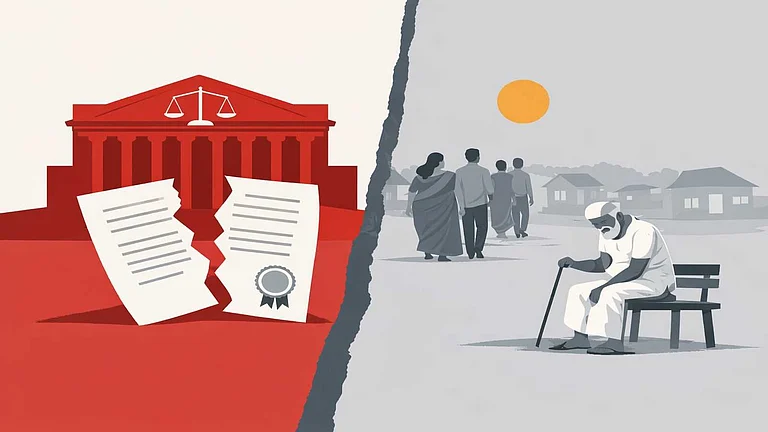The Delhi High Court has clarified that while a husband’s legal duty to support his wife and children is important, genuine financial burdens such as home loan repayments and responsibility towards aged parents cannot be ignored when deciding alimony.
This High Court ruling came during the hearing of a case where a man was ordered by a family court to pay his estranged wife and child Rs 25,000 per month as maintenance.
The man challenged this order in Delhi HC, arguing that the court had wrongly assumed his income to be Rs 70,000 while his actual disposable income was closer to Rs 36,000 after paying off rent, home loan EMIs (or Rs 11,000) and expenses related to parental care. The man also pointed out that his wife had not furnished any evidence of her own to specify income or household expenses to determine the alimony amount directed by the family court.
Justice Neena Bansal Krishna reduced the monthly maintenance to Rs 17,500, observing that the purpose of alimony is to ensure adequate support for dependents, but not at the cost of ignoring unavoidable financial commitments.
“The maintenance amount must ensure adequate support for the wife and child, while also taking account of the petitioner’s liability towards home loan and his responsibility towards parents,” the court noted.
The High Court, however, reiterated an important principle established in earlier cases: voluntary liabilities like consumer loans or lifestyle EMIs cannot dilute a man’s statutory duty to maintain his dependents.
This case is an important example of how alimony cases should be handled. The final judgement went beyond simply looking at the wife’s alimony or husband’s self-imposed debts. It involved taking due consideration for a housing loan and care for his parents - factors that the court must weigh in to strike a balance.
Another ruling by the Supreme Court earlier in June also cleared the air around fixing alimony rules. In the Rakhi Sadhukhan v. Raja Sadhukhan case, the apex court broadened the framework for fixing spousal support after divorce.
The top court had increased monthly alimony in this case to Rs 50,000 (from previous judgments) after factoring in a 5 per cent biennial hike and also transferred the marital home to the wife. This was a case that highlighted the need to secure long-term dignity and stability of a spouse in addition to factoring in the biennial increase as an automatic inflation adjustment.
When understood together, both the rulings underline how Indian courts are reviewing maintenance law. Where in one case, the apex court tied support to lifestyle, inflation, and property-based security; on the other, the Delhi High Court has stressed fairness by acknowledging unavoidable financial responsibilities.
For couples caught in separation disputes, the message is clear: while courts will firmly protect the right of dependents to live with dignity, they will also test claims against the payer’s real economic circumstances.
It is, therefore, important to provide full documentation such as income proofs, loan records, and evidence of dependents’ expenses, so that the court can arrive at a just figure.
















